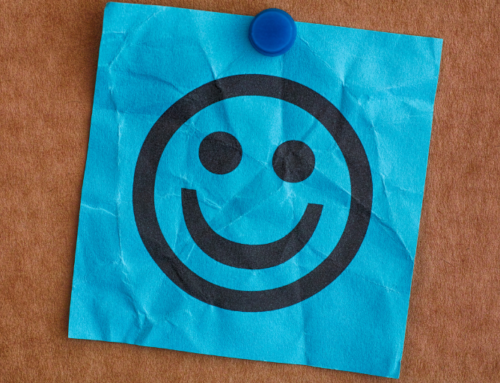It all starts with you.
The past few years have challenged not only our leadership, but the way we do everything, including our habits and our health (in all senses of the word). We have been given a unique opportunity to redefine who we truly want to be and what we really want.
As you look ahead, you may feel a desire to better yourself for the people around you. For example, you may want to be a better leader because you know we need strong leadership now more than ever.
But, before you focus on everyone else, first ask yourself, “How can I be a strong leader and contributor, if I’m not a healthy human being?”
I’m going to share a composite sketch of many of the accountants we coach at Intend2Lead – a fictitious person named Sally Smith. As I describe her, I invite you to reflect on how much of yourself you see in Sally.
Sally is a very conscientious accountant. She is generally well-liked, reliable, respected and has an incredible work ethic.
Sally also….
Sally’s automatic response to rising demands is to work more hours. She is accustomed to de-prioritizing herself and her own well-being in the little time she has left outside of work.
The costs of de-prioritizing yourself
Sally is not living a sustainable life. In fact, she’s sacrificing her future health (in all senses of the word) because she believes it’s the only way to succeed. Sally puts work ahead of her family and friends, and she puts others ahead of herself. Taking care of herself is not even on her radar most of the time.
What are the costs of living life like this? We’ve seen up-close the devastating costs of deprioritizing self-care over long periods of time: burnout, health problems (physical, mental and emotional), broken relationships, missed opportunities, hopelessness and despair.
Even in the short term, Sally short-changes her impact. Since she’s running on fumes most of the time, her team and organization receive a lesser version of her. She rarely engages fully, which limits the potential of her leadership and team.
Now, let’s get back to you. Do you see any of yourself in Sally? Are you limiting your potential and positive impact on others because you de-prioritize yourself?
Reflect on these three questions:
1. How do you envision yourself as a healthier person?
Allow yourself to imagine what being a healthy human truly looks like for you. When have you been at your best in the past? What allowed that to happen? What might be possible for you, your team and your organization when you take better care of yourself consistently?
2. Do you believe that you deserve to care for yourself before you take care of others?
This is a big one. It seems logical enough to say you’ll prioritize your self-care. You probably know it’s important. So, why haven’t you done it? What’s stopped you in the past?
It may come down to your beliefs. Many people find it hard to prioritize themselves. They think it’s “selfish.” They don’t give themselves permission to do it.
Flight attendants tell us to put our oxygen mask on first, before we help others with theirs. This seems obvious – if you run out of oxygen, you’re no good to anyone. It’s no different when it comes to your self-care. If you neglect yourself, you’re not able to effectively help any of the people you care about.
In order to follow through on your self-care, you must believe you are important enough and worthy enough to receive it. You must recognize that this helps not only you, but everyone else in your life.
3. How will you prioritize yourself, so you can unleash your leadership potential?
What will provide you with the oxygen you need? What self-care practices will support you in showing up more fully for others?
Perhaps it’s an exercise program, more consistent sleep, drinking more water, taking more breaks, or daily meditation. The options are limitless. What’s one new practice or routine that will move the needle most for you right now? What feels like the most important first step in reclaiming your self-care?
Get specific. Visualize it happening. Think about what might get in the way, and plan for it. Set your boundaries, and honor them. If you don’t honor your own boundaries, no one else will.
Once you work through these questions and discern how you’ll take care of yourself first, you’ll have a lot more energy and space to tackle any other challenges you may face.
When you’re a healthy human first, you automatically become a stronger leader for others.
Find your oxygen, and breathe it in deeply. You deserve it.
See you in the DoP,
![]()
P.S. If you need support in being a healthier leader and human, you can join our new I2L Healthy Leaders Community! You’ll receive on-going support, accountability and connection for only $39/month, including:
- Tips, tools and tricks to become a healthier leader on every level
- Access to Sarah and Brian during live, virtual Office Hours once a month
- Connection with like-minded leaders
- 24/7 access through our private, online community







